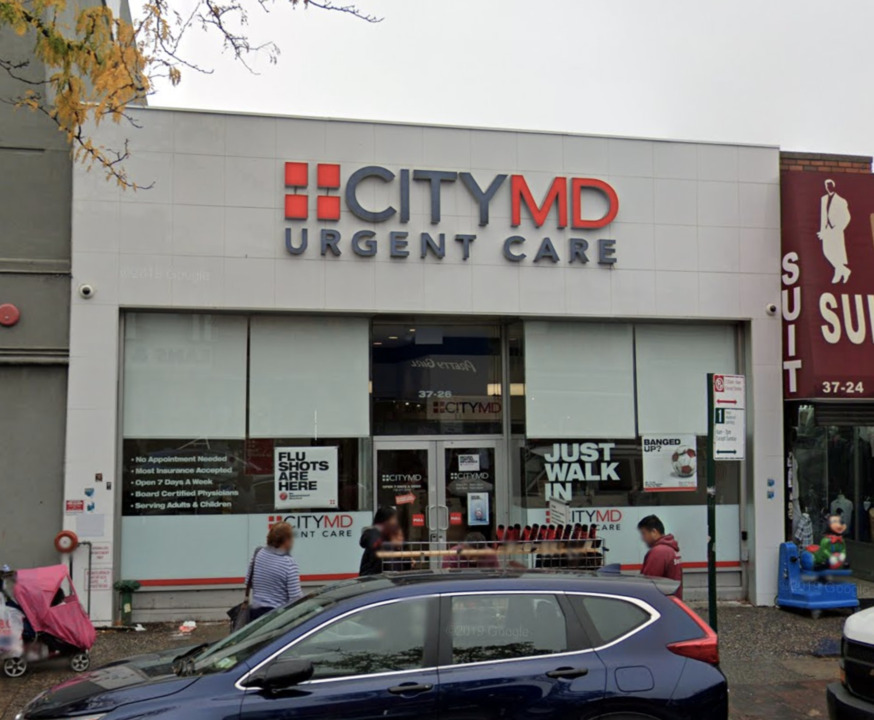
CityMD Urgent Care at 37-26 Junction Blvd. in Corona (Google Maps)
July 13, 2020 By Allie Griffin
Corona and Jackson Heights — neighborhoods hit hard by the coronavirus pandemic — may fare better if a second wave of the deadly virus hits New York City, according to a published report.
A large number of residents from these neighborhoods have the antibodies that may protect them from the virus, the New York Times reported.
According to the publication, more than 68 percent of people tested for coronavirus antibodies at a CityMD in Corona were found to have them. Meanwhile, at a Jackson Heights CityMD, 56 percent of people tested were found to have the antibodies, according to the data.
The data was collected from late April through late June.
The two communities have higher percentages of residents with antibodies than other neighborhoods in New York City, according to testing results from CityMD. For example, just 13 percent of residents tested at a CityMD in Cobble Hill, Brooklyn were found to have the antibodies.
Antibodies could provide some immunity to the virus, though scientists have yet to confirm it. Much remains unknown about the duration and strength of any potential immunity provided by antibodies.
A senior official in the city’s public hospital system told the Times that the high antibody levels in Corona and Jackson Heights only confirm what health experts already knew — that the areas were disproportionately hit by the deadly virus.
Corona, Jackson Heights and the adjacent Elmhurst neighborhood became known as the “epicenter of the epicenter” of the pandemic at its height.
More than 4,850 Corona residents have tested positive for COVID-19 since March– higher than any other neighborhood in the five boroughs, according to the latest city data.
3 Comments

Dark humor here. This area had some of the highest covid 19 cases and deaths in the country, so assuming you are still alive in the area, you have protection.
It’s is like the old saying, what doesn’t kill you makes you stronger.
OK, but wasn’t the testing sample biased because it was comprised of those who sought out treatment since they likely weren’t feeling well?!? If so, these numbers are invalidated.
No. It wouldn’t invalidate the findings. The findings was not to present the Corona’s population or others percentage of testing positive for antibodies. It only states out of those who went for testing there was a percentage and Cobblehill for example had 13%.
The findings would be not valid if the authors of the report erroneously and idiotically tried to pass off the tested percentages as random sampled testing of the communities.
The findings isn’t unexpected. Would you find high rates of positive tests for tested populations where there’s few known cases and/or hospitalizations? Of course not.